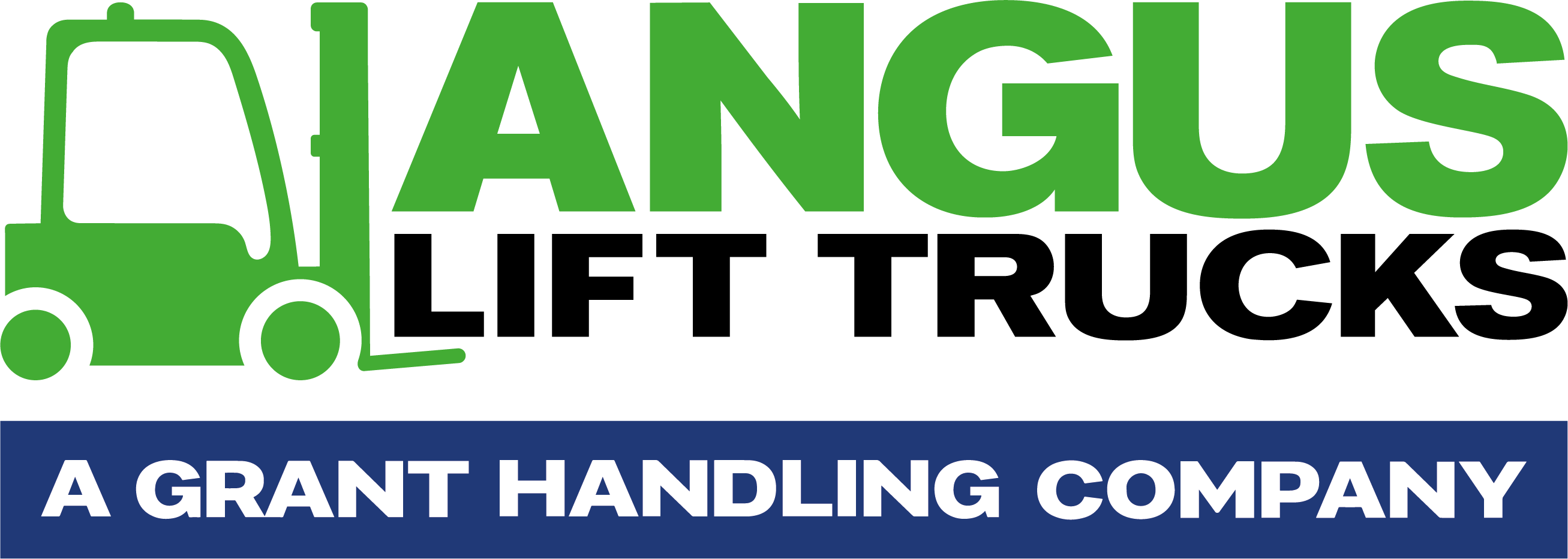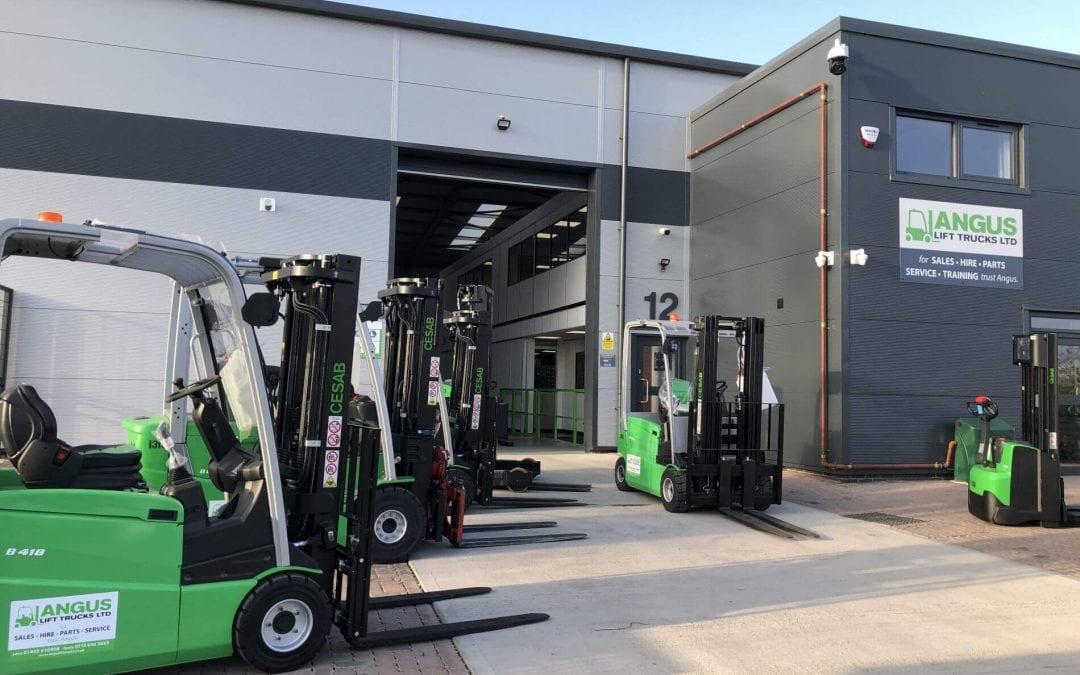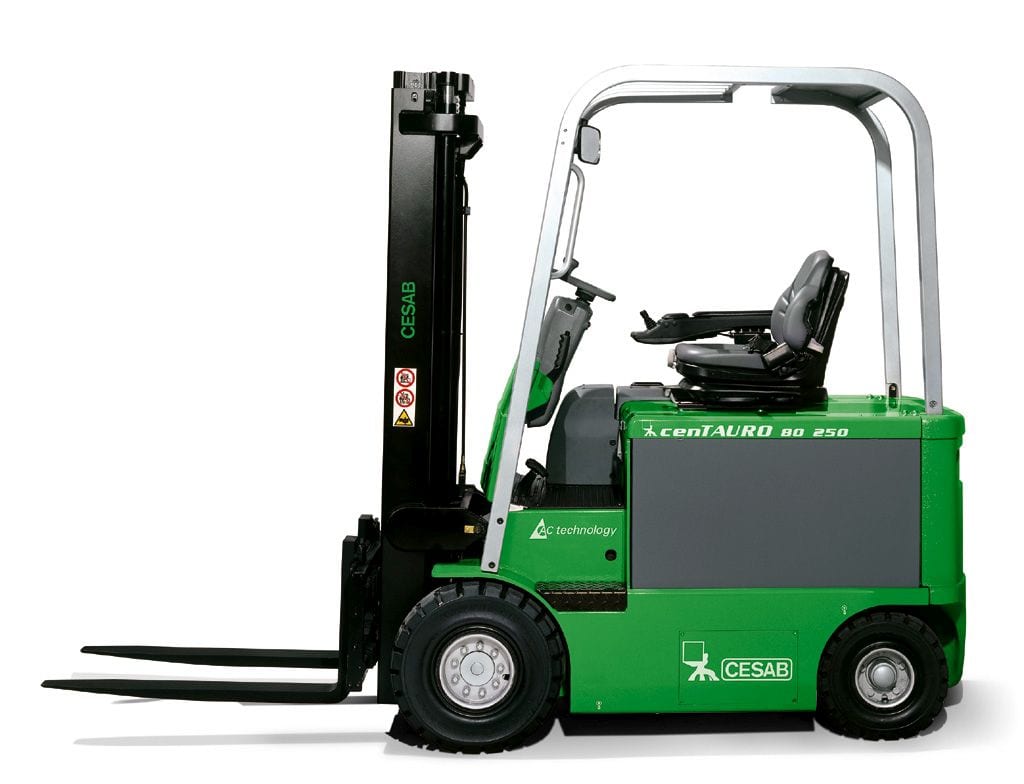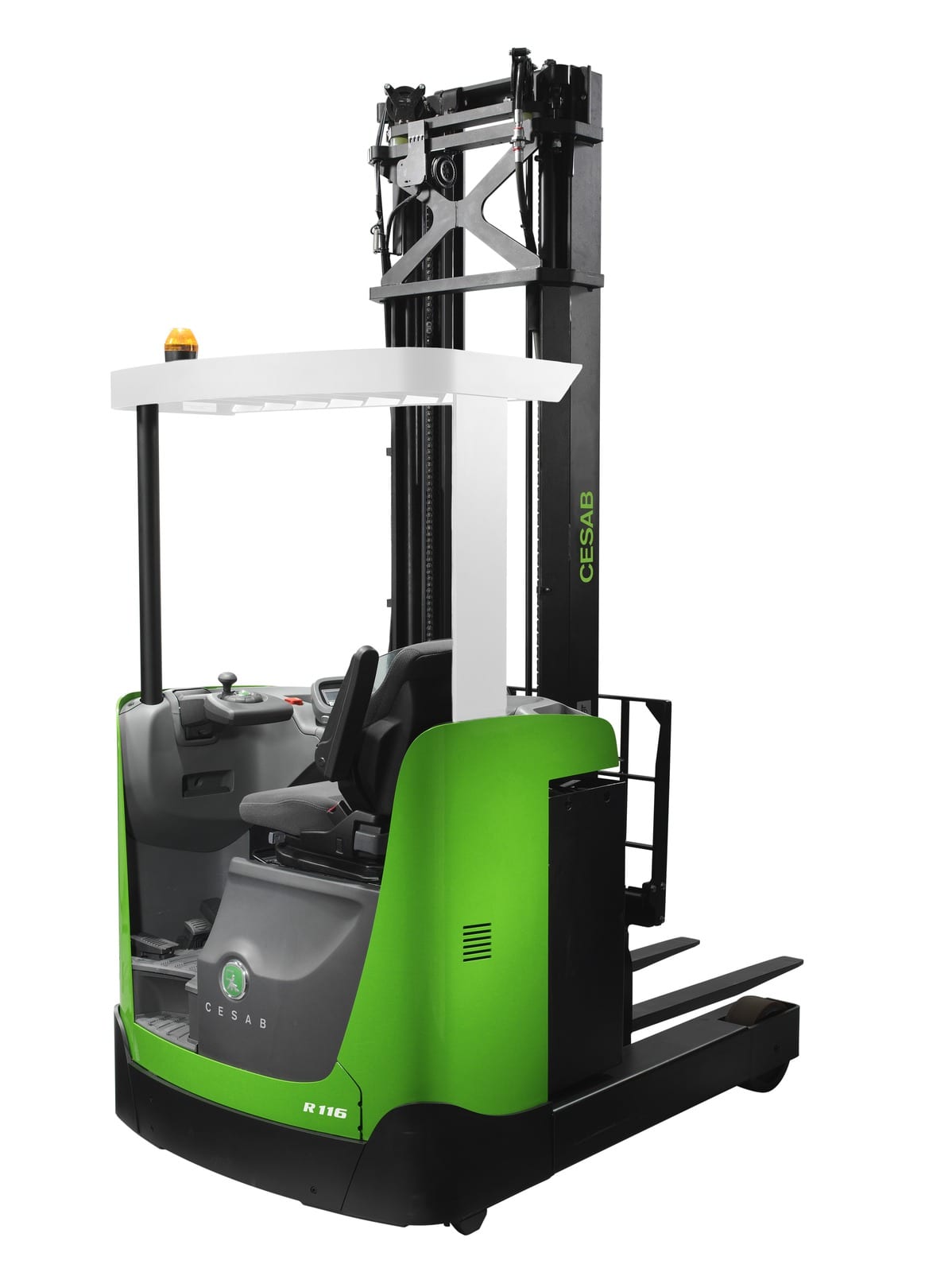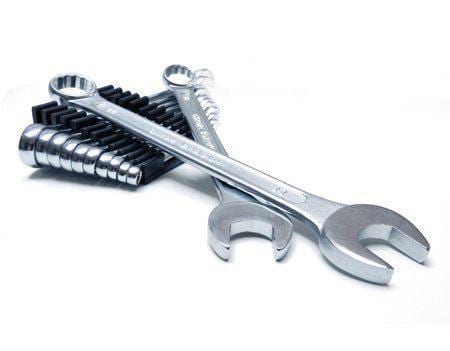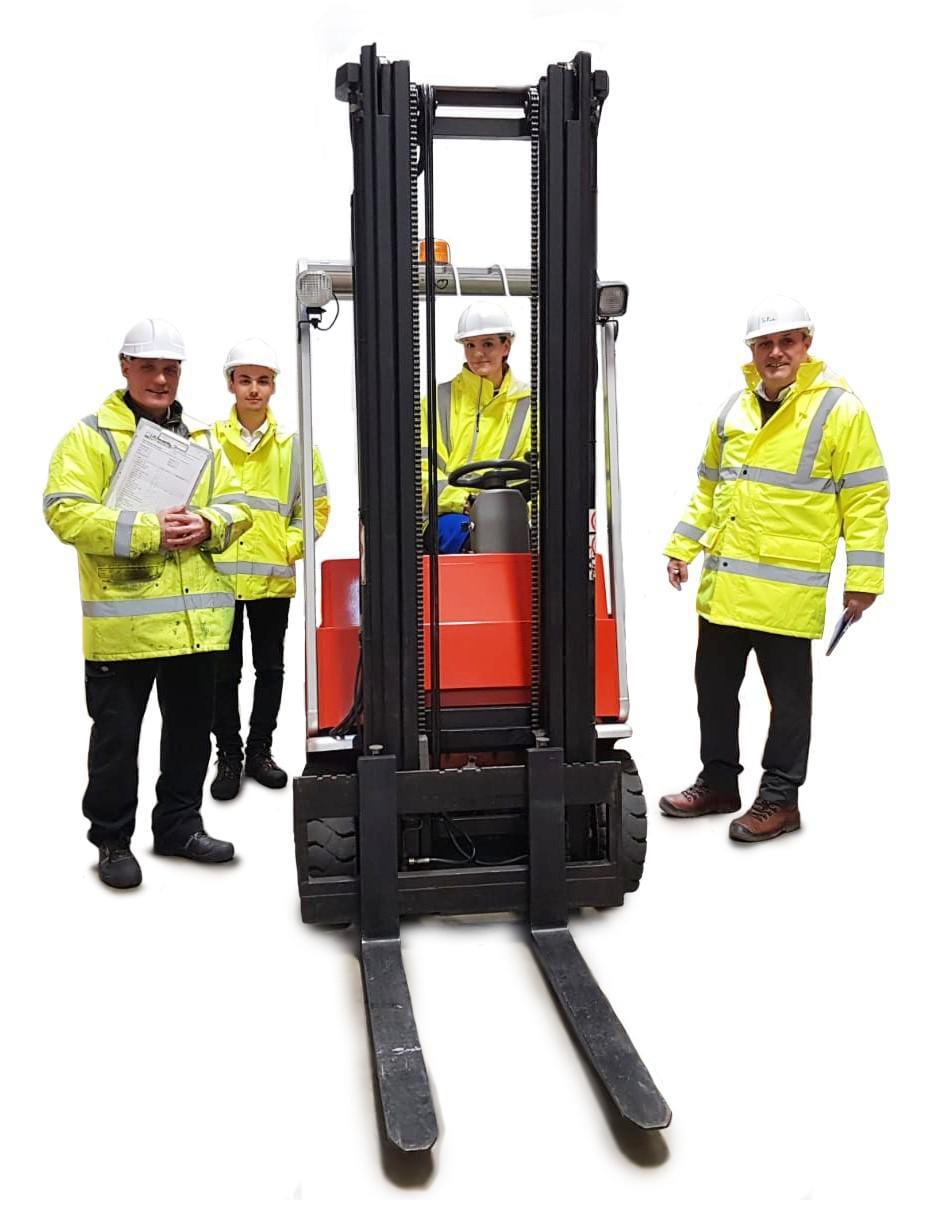There are many different forklifts that are available for purchase and rental, for both individual and company use. If you’ve begun your search for the perfect forklift, you may have realized that the variety of lifts, while great, makes choosing the ideal one for you quite difficult.
You can also start by listening to our podcast episode on the reasons you should choose various forklifts based on your case study:
LPG
LPG (Liquified petroleum gas) forklifts are widely known, making them a great option across the board. These forklifts are reliable and durable, and often more affordable than competing options.
LPG’s can handle both indoor and outdoor tasks, so businesses don’t have to spend time training their employees to operate different types of forklifts. They are also very straightforward to refuel, a task that usually takes only a few minutes.
LPG forklifts are also widely available. This is convenient as you never have to look hard for parts should you need them. Having a forklift that is widely dispersed means you have a better chance of finding one you like in that brand and being able to maintain it.
As for its disadvantages, LPG’s can take some getting used to. Proper training is essential to avoid misuse and damage to the machine.
In addition, while fuelling an LPG is easy, it may be costly. It’s difficult to tell exactly how much it may cost eventually to fuel your forklift with petrol prices constantly shifting. It may be more expensive to fuel your LPG forklift compared to other forklifts.
Pros
- Reliable and durable
- More affordable than other forklifts
- Suited to indoor and outdoor jobs
- Easy to refuel
Cons
- Refuelling costs can vary greatly
- More operator training may be required than for other forklifts
Diesel
Diesel forklifts are heavy-duty lifts that can handle serious weight. They are great for those looking to complete some severe projects.
These forklifts are made to withstand any weather conditions, making them best suited to outdoor projects. They’re great for heavier lifts and projects that may require something a little sturdier because they produce a greater and more powerful pull than many other propane or electric forklifts.
Additionally, they may be heftier but they do not lack speed. Diesel forklifts are fast, and you can rest easy knowing you aren’t sacrificing speed for quality.
Diesel forklifts have low fuel consumption, so you definitely get your money’s worth in fuel.
That being said, they aren’t the best option for the environment. One downside to owning and operating a diesel forklift is that using them indoors is out of the question. Diesel forklifts typically release fumes that are dangerous for indoor use, meaning diesel forklifts are better suited for outdoor projects. If you are looking for an indoor forklift, then this is not the option for you.
They are also more cumbersome than other forklifts as a result of their ultra-sturdiness, as well as very noisy.
Pros
- Great in any weather conditions
- Perfect for bigger jobs
- Fuel efficient
- Not slowed down by their size
Cons
- Quite noisy
- Not good for the environment
- Not suited to indoor jobs due to their size and emissions
Li-lon
Lithium-Ion battery-powered forklifts are great for those worried about energy consumption. Li-lon, or lithium-ion, forklifts are easily charged and convenient to use. In addition to being easily chargeable, these forklifts are good to go after being charged for less than two hours.
Lithium-ion batteries last four times as long as regular lead-acid batteries, thus making them extremely energy efficient. This is an excellent consideration for those that are worried about their energy usage.
Lithium-ion forklifts are also much safer than some competitors. The battery itself is completely sealed and leak-proof, meaning you never have to worry about your safety in that regard.
Lithium-Ion batteries will run more expensive initially compared to other forklift types. If you can afford it, lithium-ion batteries will end up costing less in the long run due to their efficiency, but this can be a disadvantage for those that cannot afford the initial costs.
Pros
- Energy efficient
- Easy and quick to charge
- Batteries are safe and leak-proof
- Will save costs in the long run
Cons
- Initial expense is higher than other forklifts
Electric
Electric forklifts are battery-powered forklifts that require no gas and have no engine. They are perfect for lower impact work and can be easily used by all.
Electric forklifts are ideal for indoor usage. They use lead-acid batteries that are perfect for those looking to complete indoor projects. Electric forklifts are quieter than other motorized lifts, which are great when indoors. Louder forklifts are not the best for indoor use without ear protection.
Electric forklifts end up costing less in the long run than competitors. Operating an electric forklift is an effective alternative. Electric forklifts are smaller and more compact, making them ideal for tighter spaces. If you require a forklift in smaller areas that larger forklifts cannot manoeuvre easily, then an electric forklift is ideal.
As electric forklifts are battery-powered, there are no engines or fuels to deal with. This can be an advantage over other types that may require more maintenance. Electric forklifts are easy to learn how to use and are great options for all skill levels. While other lifts may require some learning and training, electric lifts are fairly easy to begin with.
As mentioned, most electric forklifts are great for indoor use. This means they may not be suitable for outdoor usage. If you are looking for an outdoor forklift, then an electric one may not be the way to go.
As electric forklifts are battery-powered, you must recharge them. This can be time-consuming compared to lifts that may use fuel – refuelling a diesel forklift, for example, may take a few minutes, while restoring battery may take hours.
Electric forklifts may not be ideal for intense work, either. If you are doing heavy work with your electric forklift, it may require a higher-powered battery, slowing down working time. The cost of the batteries and associated materials make electric forklifts more expensive than some other options. If cost is an issue, you may steer clear of this lift.
Pros
- Costs less to operate in the long run
- Easy to use
- Little noise production
Cons
- Not ideal for outdoor jobs
- Not ideal for intense work
- Costs for additional batteries and materials can accumulate quickly
Looking to Buy or Hire
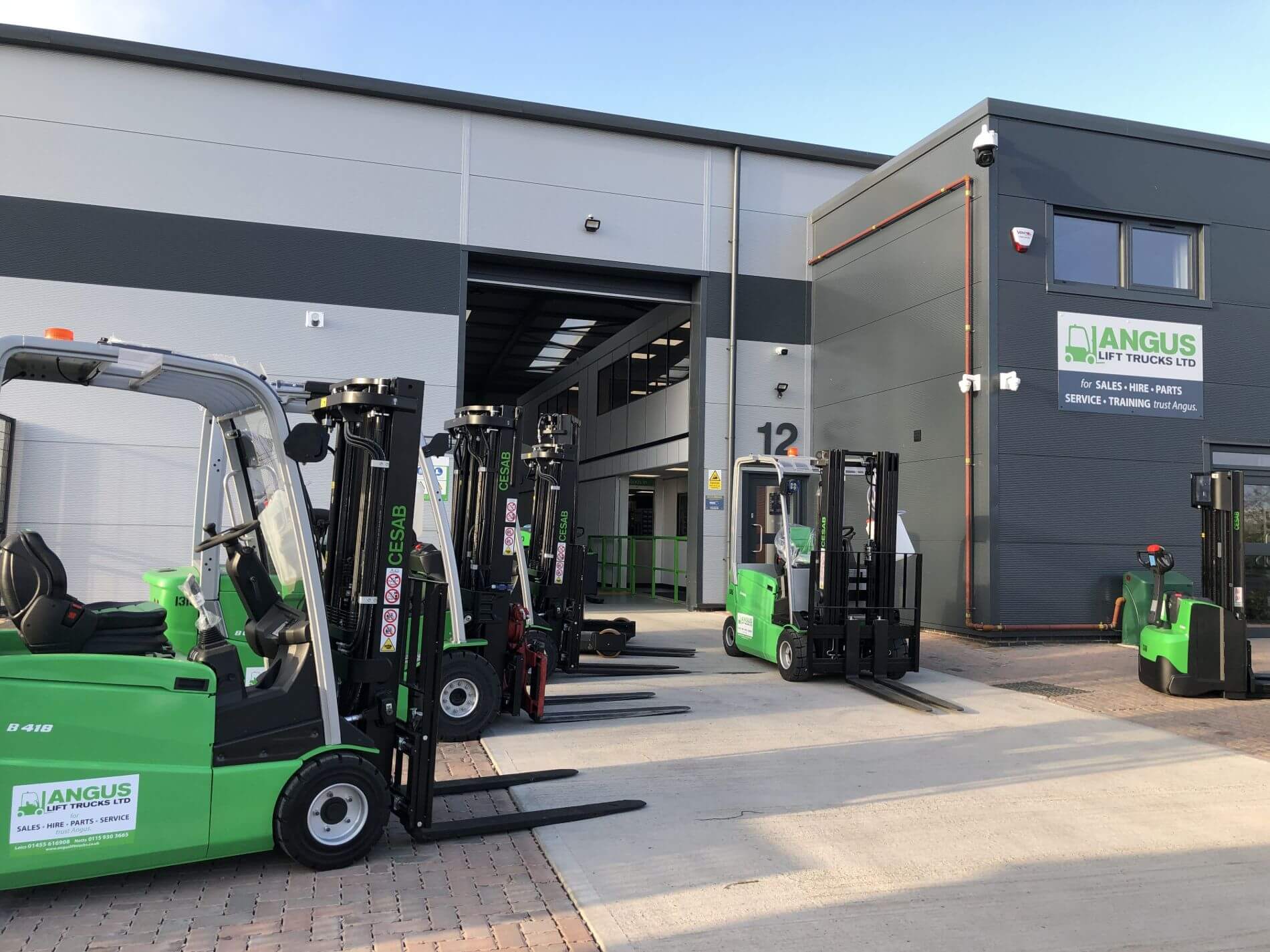
a forklift?
With 35+ years of experience, we offer our most competitive rates, flexible finance, 4h service promise & more!
The Right Lift for Your Project
In the end, choosing the correct lift for your project comes down to a few things. You can ask yourself these questions to get a better understanding of which forklift may benefit you the most.
Easier Tasks vs. Harder Tasks
If you are trying to complete a lowkey, smaller project, then an electric forklift will do the job perfectly. A smaller project can be completed efficiently with an electric forklift, as well as with an LPG, due to their size and manoeuvrability.
Diesel forklifts are better suited to bigger, harder tasks due to their generally larger size and durability.
Indoor vs. Outdoor
Knowing whether you will do more work indoors or outdoors with your forklift is a big component. If most of your work will be indoors, an electric forklift is the best option for you. They have good manoeuvrability, they are quiet, and they are generally smaller than other types of forklifts.
If you are going to be doing most work outside, you may consider a diesel lift. Diesel forklifts are built to endure any weather conditions, making them perfect for outdoor work.
With that said, don’t overlook an LPG forklift. These are suited for both indoor and outdoor work, are less noisy than diesel, and are as manoeuvrable as electric forklifts.
Initial Costs vs. Long-Term Costs
Li-ion battery-powered forklifts and electric forklifts are definitely more expensive upfront than diesel or LPG forklifts. In the long term, your maintenance costs for diesel and LPG forklifts will possibly remain the same, but chances are they will increase with time.
Li-ion battery-powered forklifts have extensive life-spans, requiring little maintenance over time. Electric forklifts have additional costs attached to them, which can accumulate, but they still require less maintenance than LPG and diesel forklifts, making them a more cost-effective option in the long run.
Battery Powered vs. Engine Forklifts
Another thing to consider is whether you prefer a battery-powered forklift or one with an engine. There are pros and cons to both, such as battery-powered lifts being quieter than engine lifts. Figuring out which you prefer can help you narrow down your choice even further.
Environmental impact
Undoubtedly, Li-ion forklifts are the most eco-friendly option out of the four forklifts. Electric forklifts come in second in this category, with LPG being moderately environmentally friendly.
Diesel, however, is decidedly last in this race. It is known for its significant amount of emissions, so much so that it is one of the reasons why diesel forklifts are not the most suited to indoor jobs.
You may also like
Conclusion
After you have made these considerations and found a few options you may be interested in, do some research! It ultimately comes down to the task at hand. You may find that a specific type of lift works well with your lifestyle and way of working more than another does.
Of course, if you would like to get more information about the rental options available to you, at Angus Lift Trucks we have been renting and selling for over 35 Years in Leicestershire, Nottinghamshire, Birmingham, Northamptonshire, Warwickshire, Derbyshire, West Midlands & East Midlands.
This post is also available in:
Français
Deutsch
Italiano
Português
Español
Български
Hrvatski
Eesti
Latviešu
Lietuvių
Polski
Português
Русский
Slovenčina
Slovenščina
Türkçe
Українська
Albanian
Čeština
Dansk
Nederlands
Ελληνικά
Magyar
Română
